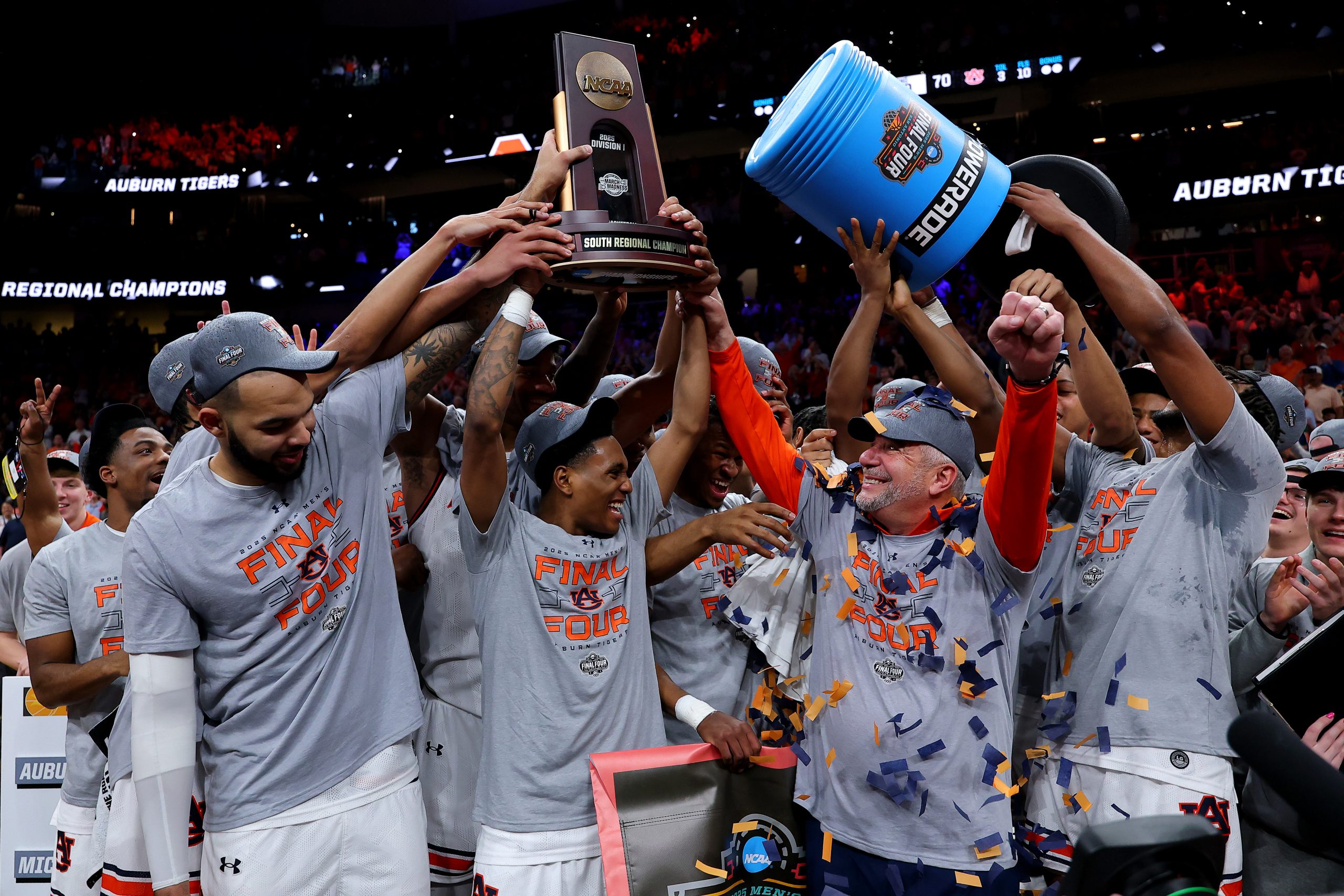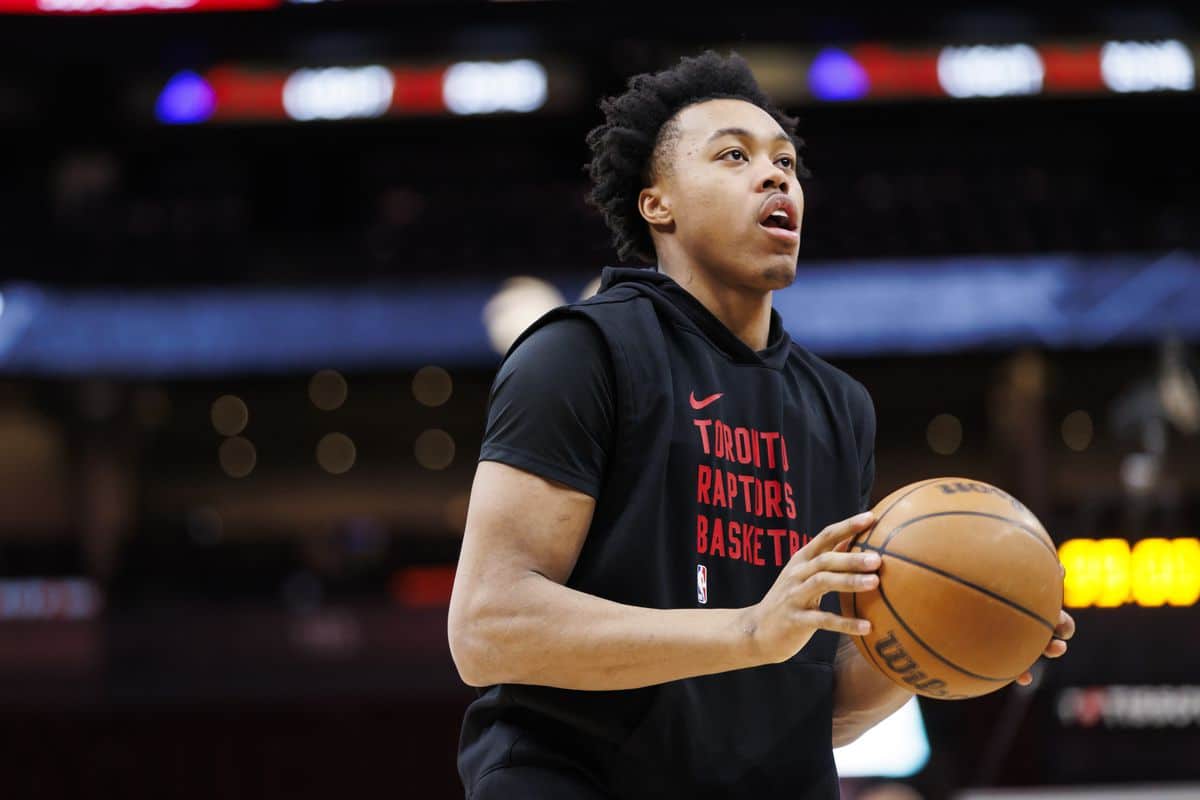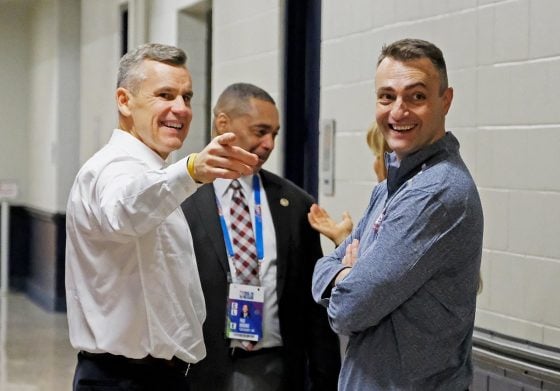When Jaylen Brown signed his $304 million contract extension to remain with the Boston Celtics this summer, he told reporters that he appreciated the organization’s commitment to him and that he plans to fully return that commitment — both on and off the court.
As Boston’s most expensive player (until Jayson Tatum inks a similar extension this summer) Brown has also become the most polarizing player amongst the Celtics’ fanbase. Many feel like the Cs committed too much cap space to a guy who plays out of control. Others have faith in JB and hope that he is part of the franchise’s (hopefully successful) long-term future.
On top of being the most expensive and most polarizing member of the Cs, Brown might also be the most important. The wide range of performances that Boston can get from him on any given night has the potential to heavily sway whether they win or lose. Sure, you could say that for just about any player, but with Brown it just feels more substantial.
Take a few games from the past week of hoops for example.
Friday’s In-Season Tournament loss to the Orlando Magic was a brutal watch. The Celtics started strong but then saw things come crashing down in a disastrous second half. Those final 24 minutes were absolutely brutal for Brown, who converted on just one of his 14 attempts during that stretch.
It’s not hard to take a look at the box score, see that, and take it as a bad game without even having to dive below the surface.
When you take a closer look, it gets worse — much, much worse.
There were a lot of times where Brown settled for tough self-created threes at times when it just wasn’t necessary.
In the above clip, he elects to try a sidestep three, rather than challenging Goga Bitadze on the drive. Brown’s athleticism undoubtedly would’ve given him an advantage, perhaps causing the defense to collapse and leave some of Boston’s shooters open.
Here JB sees an opportunity to capitalize on some drop coverage by the Magic after using a Luke Kornet screen. While the look itself isn’t awful, it does seem a bit rushed. Had Brown shown some patience, Kornet could’ve become open on the roll, or he could’ve tried to take Mo Wagner off of the dribble. There was simply too much time on the shot clock for him to fire this one up, especially without really getting set.
In the clip above, Brown pulls up for a three with 16 seconds left on the shot clock. Yes, they’re down 12 with just under five minutes to play, but there’s still enough time for the offense to work for a better shot than this one. Not to mention that leading up to this, JB had missed eight straight attempts from the field.
This loss was in no way solely on Jaylen Brown. Plenty of things went wrong in this one. But, his rushed decision-making didn’t help the cause when the ship was going down.
On the complete opposite end of the spectrum was last Wednesday’s win over the Milwaukee Bucks, where we might’ve seen the best game of his to date. Boston’s No. 7 poured in 26 points on 10-of-16 shooting from the field and 3-of-5 from long range. In addition to his efficient scoring outburst, Brown also dished out eight assists while turning the ball over just once.
It was a night where JB played very much into the flow of the team’s offense. He forced far fewer shots than usual and largely took advantage of whatever the Milwaukee defense was giving to him.
The fluidity of his decision-making played a massive role in his ability to set his teammates up for easy looks.
Just take this lob to Kristaps Porzingis as an example.
The chemistry between the two has been a massive storyline through the first month of the season, so seeing something like this isn’t shocking. It is, however, an improvement for JB. How many times have you seen him take on multiple defenders just to turn the ball over or force a tough attempt in the paint? He could’ve done that here, but instead, he tossed it up to The Unicorn for the highlight jam.
Here’s another example:
In a situation where he could’ve looked to draw a foul, Brown dumped a pass to the cutting Porzingis for an easy two. He was never out of control, his head was on a swivel enough to not only find the Latvian, but also to fake a pass to Jrue Holiday to further open the paint.
Scoring-wise, the 27-year-old’s efficient onslaught got started through the same method, playing under control and letting the game come to him.
He logged eight of the Celtics’ first 10 points in that game and he did it by making quick decisions, rather than trying to do too much.
Now, you might be saying, “Wow, Sam. Way to prove your point about not doing too much by showing a clip of Brown challenging Brook Lopez at the rim.” You’d be very just in doing so, but this clip is great because of how quickly the play develops. Brown takes advantage of the quick pass from Holiday off of the tip, takes two dribbles, and gets to the rim. He didn’t do anything more than what was necessary.
After this play, JB drilled a pair of threes, which were both created by some solid Celtics ball movement.
This year’s Celtics team is simply too good for decisions like those that Brown made against the Magic. With the amount of talent surrounding him and Tatum, the standard should be deliberate yet patient play like we saw against Milwaukee.
That’s something that he lacked last spring when he got sped up really badly against the Miami Heat in the Eastern Conference Finals. He was driving into multiple defenders almost every time down the floor, forcing his offense, and turning the ball over. It’s all anyone could talk about throughout the offseason.
In fairness to Jaylen, it feels like we’ve seen much more of the patient play from him so far this season. The two games I picked out are extremes on both sides of the fence. In both cases, it’s clear that his play had an impact on the game’s outcome.
For that reason, it feels like Brown has the most influence on what this Celtics team can accomplish. He may not be the best player, but he almost serves as an embodiment of how the group as a whole is playing on any given day.
His struggles in Orlando went hand-in-hand with the Cs’ complete meltdown in the second half. Meanwhile, his patience and smart decision-making against the Bucks helped Boston get their offense absolutely buzzing.
As the “second star” on this team, he has a responsibility to be able to read the game and pick his spots. It’s something that comes along with the added freedom that he has on offense as Boston’s secondary scoring option.
If he struggles and forces the issue when he doesn’t have it, the ramifications will be felt to a larger degree than if someone like Al Horford has an off night. Any time Horford steps up and has a big game, it’s gravy, not the expectation because he doesn’t have the responsibility of being one of the top scorers. His role isn’t large enough that Boston absolutely needs him to be included in their offense at all times. He basically just serves as a safety valve when defenses collapse.
However, Brown is someone that it’s harder to remove from the flow completely. He’s going to get his shots and is also going to get the attention of the defense. So, where he actually decides to take those shots is important. If he’s making things easy on the opposition by settling for tough perimeter looks, then his teammates will also have to settle for tough looks. There will be no collapse and the open shots just won’t be there for “the other guys.”
That’s a long, roundabout way of saying the Celtics go as Brown goes — and Brown can go in a lot of different directions.





